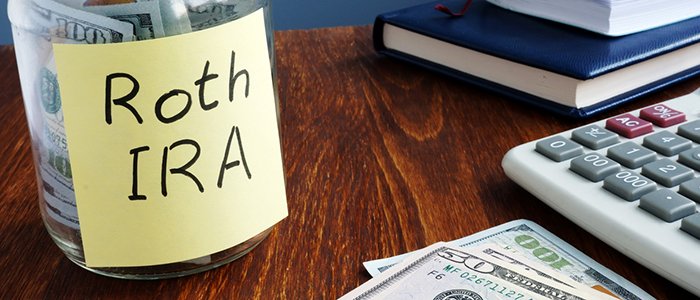Down Market? Consider a Roth Conversion
Market downturns can cause distress, but they can also provide opportunities. One such opportunity is converting a traditional IRA into a Roth IRA. Read on to find out why you might want Roth accounts in your retirement plan, how a down market can help save you money on a conversion, and potential pitfalls to be aware of.
Why a Roth IRA?
A Roth IRA can increase your tax flexibility in retirement. With a traditional IRA or 401(k), you enjoy tax benefits when you make contributions, but you owe taxes when you withdraw funds. You also must take required minimum distributions (RMDs).
The Roth IRA offers the reverse: You don’t have to take RMDs, and your withdrawals are generally tax-free because you paid taxes when you made the contributions.
With its tax-free distributions, a Roth gives you another income bucket in retirement. Bear in mind that the current, lower tax brackets are set to sunset in 2025 unless Congress moves on them. After that, the brackets would rise to the higher 2017 rates. If you expect your income taxes to increase in retirement, distributions from a Roth account might help minimize the impact.
Because you don’t have to take RMDs, you have a potential estate planning strategy with a Roth. If you don’t need the money, you can let the balance grow for an heir. Any non-spousal beneficiary would have to withdraw the entire amount within 10 years (which can affect their income tax planning). However, the withdrawals will be tax-free if you set up the account at least five years prior.
All these features make Roth IRAs an attractive strategy. However, your ability to contribute to one phases out as your income climbs. You cannot contribute once your modified adjusted gross income (MAGI) reaches $144,000 for single taxpayers in 2022 and $214,000 for married couples filing jointly. However, you can bypass this rule with a Roth conversion.
Why Use a Down Market to Make a Roth Conversion?
When you convert a traditional IRA to a Roth IRA, you pay taxes on the conversion. Depending on the size of your portfolio, those taxes could be substantial.
That is why a down market can be an opportunity. Your portfolio value has dropped, so the taxes you owe on the conversion decrease. Once your portfolio starts to increase again, you will owe more taxes if you decide to convert at that point. That is why down markets can be so beneficial.
Some Potential Downsides
Before you complete a Roth conversion, you should feel reasonably assured that you will not need to make withdrawals from the Roth for five years. Otherwise, you face a 10% penalty on your withdrawals.
You should also have the cash to pay the income taxes you owe on the conversion. You don’t want to pull funds from another retirement account to cover the taxes and incur more taxes and, potentially, penalties.
Finally, be aware of the potential impact if you already receive Social Security or Medicare benefits, or plan to within the next couple of years. A Roth conversion could increase your Social Security taxes. It could also raise your Medicare Parts B or D premiums.
Talk to a Financial Advisor
A Roth conversion could increase your tax flexibility in retirement and be used as an estate planning tool. A down market can be ideal since your portfolio will have dropped in value and you can pay less income tax on the conversion.
A Roth conversion isn’t for everyone. Our wealth management firm in Lehi and Logan, UT, and Roseville and Folsom, CA, helps clients determine whether they would benefit from a conversion as part of their overall retirement plan. Schedule a complimentary, 15-minute call with a fee-only, fiduciary financial advisor today to discuss your personal situation.
This material was prepared by Kaleido Inc. from information derived from sources believed to be accurate. This information should not be construed as investment, tax or legal advice.
Parkshore Wealth Management is a family-owned, independent, fee-only Registered Investment Advisor with offices in Roseville and Folsom, CA, and Lehi and Logan, UT. We partner with financially responsible individuals and families who are eager to take positive steps that will allow them to use their money to build the life they desire. The firm is led by Harold Anderson, CFP®, and Daniel Andersen, CFP®, both members of NAPFA, the country’s leading professional association of fee-only financial advisor

